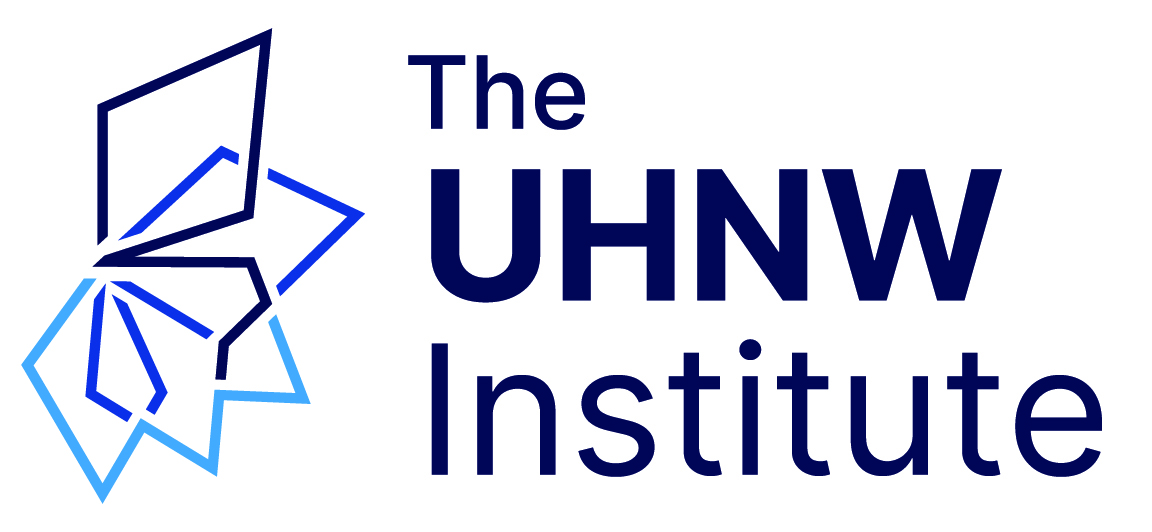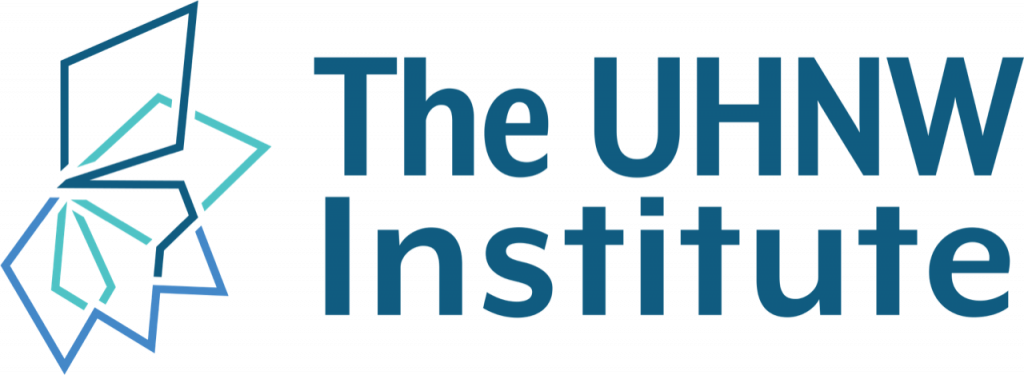Jim Grubman, Board of Directors Member and Chair of the Content and Curriculum Committee at The UHNW Institute was recently interviewed by Canadian Family Offices on Wealth 3.0. Learn more about Jim’s background, key concepts within Wealth 3.0, and what’s next for the wealth advising industry, in the article below.
‘Wealth 3.0’ and what’s next in advising: A chat with Jim Grubman, originally published by Canadian Family Offices on 12/14/2023.
‘Wealth 3.0’ and what’s next in advising: A chat with Jim Grubman
New book sets aside earlier negativity, offers roadmap for thoughtful evolution of financial advisory role
So what’s changed? The book points to demographic shifts over four decades, new attitudes toward family and communication, and the availability of quality resources. These factors have eroded the inevitability of the old shirtsleeves-to-shirtsleeves adage.
What are the key things you want wealth advisors to take away from the book?
The first part of the book was laying out the groundwork and the general vision. The second part starts with practices, like what are the four components of the actual roadmap on a practical level? What advisors need to know about Wealth 3.0 is that it’s a combination of getting rid of the things that didn’t work – the pessimism and negativity, the biases and leading with fear (like starting with, “Let’s talk about what keeps you up at night”) – while keeping the best parts of 2.0. The latter includes things like understanding there are multiple aspects of the family that are not just about the money, and getting a sense of purpose of what people want to try and achieve with the money and their family.
And then there is the third element – learning some new approaches, new skills, and working harder to combine and collaborate with the other advisors and the domains in the field. You’ll see more about the Ten Domains of Family Wealth, which Canadian Family Offices has talked about in previous articles.
Your book follows the story of a wealth advisory firm and the people in it. Is this story based on a real company and real people?
We sometimes get asked about that, partly because there are some situations in the field that have been remotely similar. But we just made the story up. We understand that a human-interest element in storytelling captures people’s imagination much more than just dry stories.
Which version of family wealth advising did you have in mind when you started working in financial services?
In some ways I started at “Wealth 2.5.” By training, I’m a psychologist and neuropsychologist. I worked in the medical system in essentially my first career. The relevance is that, through the 1980s and 1990s, integrating psychology into health care was a movement. I would help train physicians in patient communication skills and bedside manner. I worked on medical units where there were integrated teams.
So, from the get-go, I got used to working on collaborative teams and as part of systems. When I later transitioned in the late 1990s to working in financial services, I already had in my head this perspective of how things could be. That’s why I say I was already at about 2.5 when I entered a system that was barely developing 2.0. My career has been to help develop the financial field in the direction we are now seeing.
How did you go from healthcare and into family consulting in the wealth space?
Well, it was a result not of my doing but the fact that my father, who was a successful businessman, died suddenly in 1980 just as I was going off to get my PhD in graduate school. He left my mother money, so my life on the personal side was plunged into a world of affluence. My mother was really untrained and unaware about what to do about it. I, as my father’s son, have a bit of his business head and perspective.
So, while I was studying clinical psychology, I was also learning about trusts and estates and finance and wealth management. Then the bull market began in 1982. So I was basically on parallel tracks, being educated in two entirely different worlds.
In your book, you talk about a paradigm shift and the skills that financial advisors need to have today to be able to address the needs of Wealth 3.0. These seem to be very specialized skills, mindsets and habits. What can a financial advisor do today to catch up to Wealth 3.0? And are there some who might wonder if they even can or should learn these new skills?
You know when you go to conferences and people are saying, “The future is already here, it’s just not evenly distributed” – that’s the nature of Wealth 3.0. There are pockets where some advisors are already doing some aspects of it. There are some multi-family offices that have integrated services, but they’re just outposts. Most firms are still just starting.
What you’re touching on goes back again to healthcare in the 1980s and the ’90s with the idea that patient communication skills and bedside manner could be taught, as opposed to either you have them or you don’t. The same thing applies in financial services. There’s been relatively little formalized training for teaching advisors what actually are very teachable skills.
I and Dennis Jaffe – and now Kristin Keffeler, and many others in the field – have spent the last 25 years training advisors and teaching these skills, and people have benefited from them. But you’re right – the person has to step up and recognize that “I want to learn it, I need to learn it, and it is possible to get better at it.”
This book is directed toward financial advisors. But you also address the need for wealthy families to change their culture. What kind of reaction have you had from members of wealthy families who have read your book?
One of the most gratifying aspects of having Wealth 3.0 out in the world is its impact on families, particularly the second and third generations in families. It’s been amazing how many G3s have come up to me at events.
I can remember one guy in particular, about 28 years old, who came up to shake my hand at a client event. With tears in his eyes, he said: “You are the first advisor I have ever heard who did not say I was going to destroy the family.”
We always hear about this idea of “You don’t own the wealth, you’re stewards of the wealth.” I’m hearing from you that Wealth 3.0 is not necessarily about stewardship.
Wealth 2.0 was really wonderful in bringing out great concepts like stewardship. But then those concepts got rather ossified. “You must have stewardship. You must be a good steward. That’s your purpose. Everybody must learn stewardship and do it for the good of future generations.”
A lot of unhelpful understanding about wealth got set in concrete and went unchallenged. For anybody who said, “We are going to be somewhat good stewards, but we think the highest use of the wealth is to have a social impact. So, we want to take what has been great fortune, keep enough for ourselves to have a decent life, and then we’re going to use the rest for a good cause. In the end, the family will have less money, but we’re okay with that.” That was not necessarily a permitted idea in 2.0.
There’s a part of the book about letting go of expectations of what should or should not be done either with the money or with the family. If G2 and G3 determine they want to do things like educate themselves, do philanthropic work and, in the end, the money goes away but it has benefited the family or the world – that’s a legitimate purpose. The measure of success is not whether the money lasts.
So in many ways you’re taking some of the weight off G2 and G3 and hopefully allowing them to be happy about something that’s supposed to be great but instead has become this constant guilty burden.
Absolutely. The motivation for talking about Wealth 3.0 and then writing about it has been for those people in families who were unfairly stereotyped and blamed. In 2.0, we told people that not only is it understandable that they’re worried about the family, we told them they were right to be worried, that if they were really lucky they could escape “the curse of shirtsleeves to shirtsleeves.” They believed that and told their families about it, and it was really unfortunate.
Now families are breathing a sigh of relief. What’s interesting, when I’ve talked about this at client events, is seeing the optimism, energy and empowerment that rise up in the group. They’re happier and smiling and thinking of what they’re going to do together. For me the best part of 3.0 is the impact on families, releasing them from the pessimism and encouraging them to plan together with purpose.
Wouldn’t this happen organically anyway because families do evolve, and each subsequent generation seems to have a different viewpoint that for the most part builds and improves on the viewpoints of the generations before them?
I do think they probably would have gotten there eventually. It might have been a bit more revolutionary than evolutionary, in that the younger generation might have had to really stand up and break away from the stereotypes and the pessimism themselves without the support of the G1s and their elders. And the elders would have continued to say, “You don’t really understand. Let me tell you again about shirtsleeves-to-shirtsleeves.”
Understanding Wealth 3.0 will help advisors know how to just say to G1s: “We understand your anxiety, it’s natural, but you may not need to worry as much as you think. Let’s talk about things you can do to achieve what you want – with purpose.” Then we can turn to the G2s and G3s and say, “We understand you. We know there is greater opportunity here and, in a sense, we’re going to advocate for you.” This takes out some of the potential conflict from the rising generation having to stand up and do it for themselves. In a sense, it is truly advocating for them.
Do you anticipate writing a Wealth 4.0, perhaps in the next five to 10 years?
Ha-ha, no, because Wealth 3.0 probably will take decades. We’re just beginning. There’s a whole infrastructure that has to get built for the professional field – in the second half of the book, we talk about professional organization, credentialling, training, educational programs and research. We’ve already heard from people who have offered research possibilities. We are already talking with credentialling organizations about what would be needed for a new credential at the high end of the field.
Family offices have applauded this, saying, “We need to have some verified way to know who’s ready and able to work at the family office level.”
So, Wealth 3.0 is going to be decades unfolding. Then we’ll see what happens after that.
Responses have been lightly edited for clarity and length.

